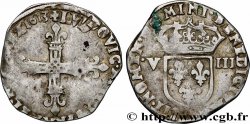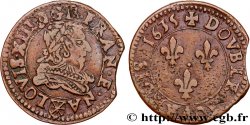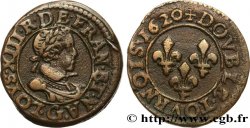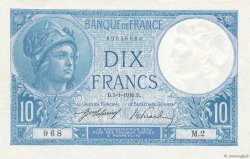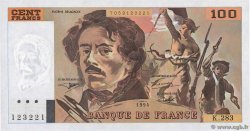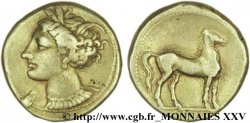Live auction - bry_453126 - LOUIS XIII Demi-écu, buste drapé (1er buste de Jean Warin) 1642 Paris, Monnaie de Matignon
You must signin and be an approved bidder to bid, LOGIN TO BID. Accounts are subject to approval and the approval process takes place within 48 hours. Do not wait until the day a sale closes to register. Clicking on "BID" constitutes acceptance of the terms of use of cgb.fr private live auctions.
Bids must be placed in whole Euro amounts only. The sale will start closing at the time stated on the item description; any bids received at the site after the closing time will not be executed. Transmission times may vary and bids could be rejected if you wait until the last second. For further information check the Live auction FAQ
All winning bids are subject to a 18% buyer’s fee.
All winning bids are subject to a 18% buyer’s fee.
| Estimate : | 550 € |
| Price : | no bid |
| Maximum bid : | no bid |
| End of the sale : | 05 June 2018 16:19:19 |
Type : Demi-écu, buste drapé (1er buste de Jean Warin)
Date: 1642 2e
Mint name / Town : Paris, Monnaie de Matignon
Quantity minted : 358300
Metal : silver
Millesimal fineness : 917 ‰
Diameter : 33,5 mm
Orientation dies : 6 h.
Weight : 13,36 g.
Rarity : R2
Coments on the condition:
Ce demi-écu est frappé sur un flan irrégulier présentant un éclatement de flan à 7 heures. Exemplaire recouvert d’une patine grise hétérogène
Obverse
Obverse legend : LVDOVICVS. XIII. D. G. FR. ET. NAV. REX.
Obverse description : Buste lauré de Louis XIII, drapé à droite avec baies dans la couronne.
Obverse translation : (Louis XIII, par la grâce de Dieu, roi de France et de Navarre).
Reverse
Reverse legend : .(MM). SIT. NOMEN. DOMINI. - A - .BENEDICTVM. 1642.
Reverse description : Écu de France couronné.
Reverse translation : (Béni soit le nom du Seigneur).







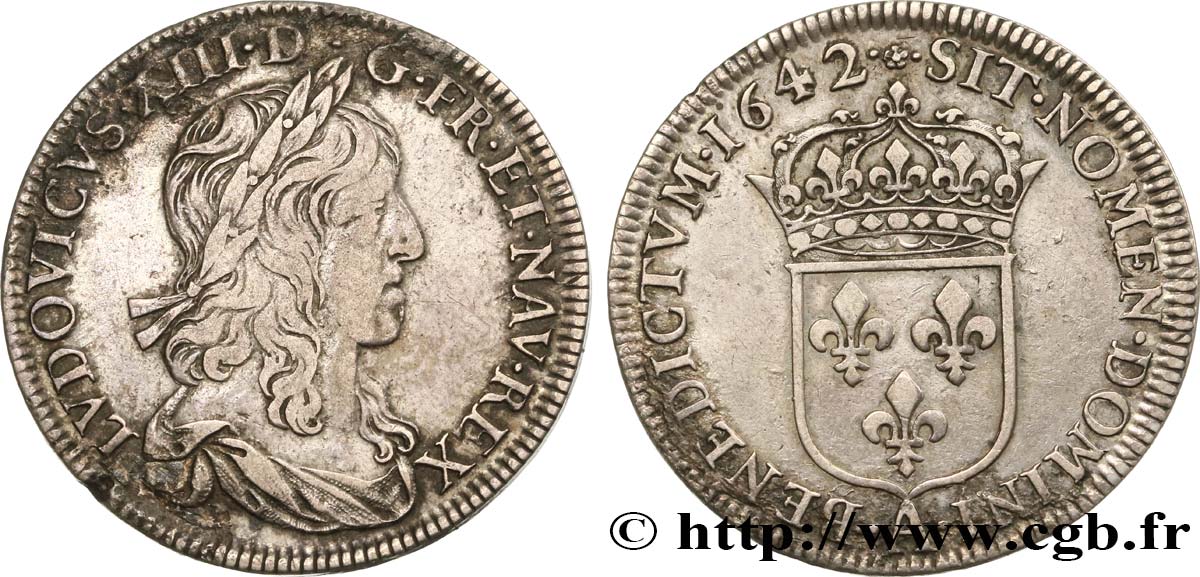
 Report a mistake
Report a mistake Print the page
Print the page Share my selection
Share my selection Ask a question
Ask a question Consign / sell
Consign / sell
 Full data
Full data